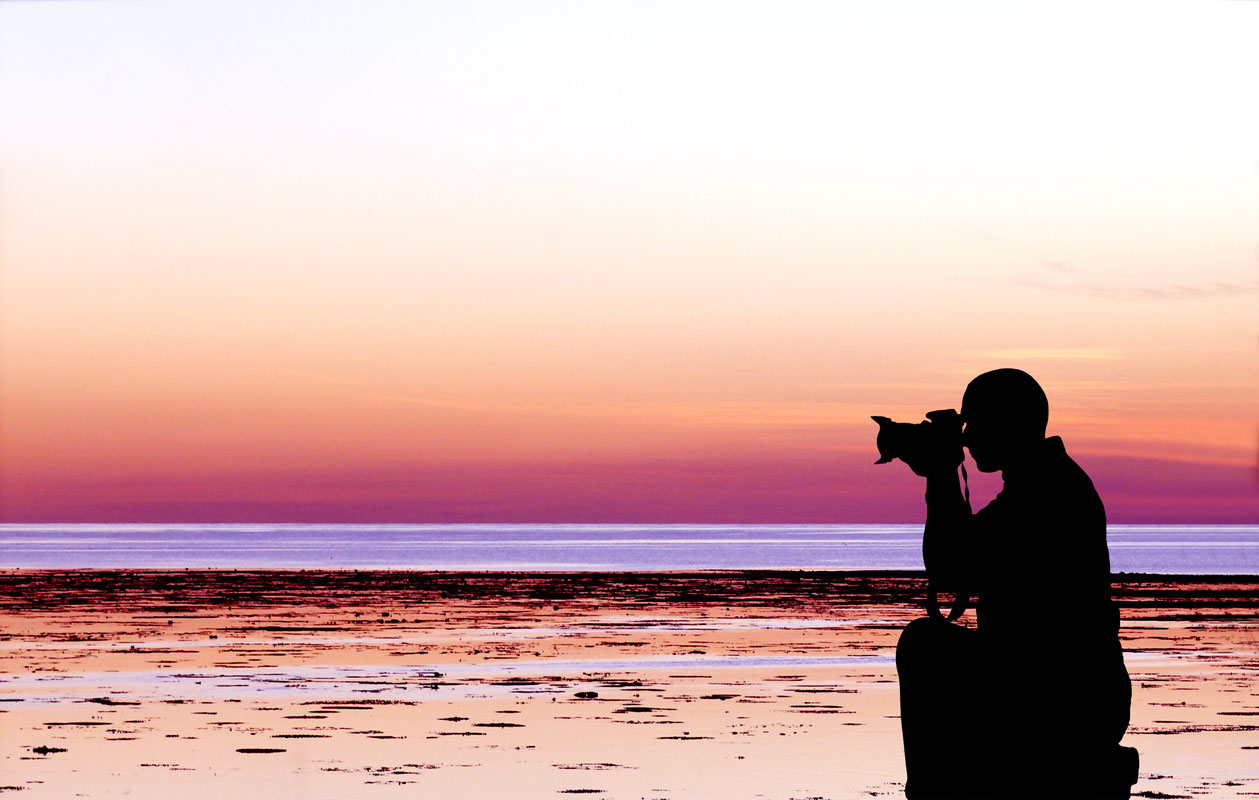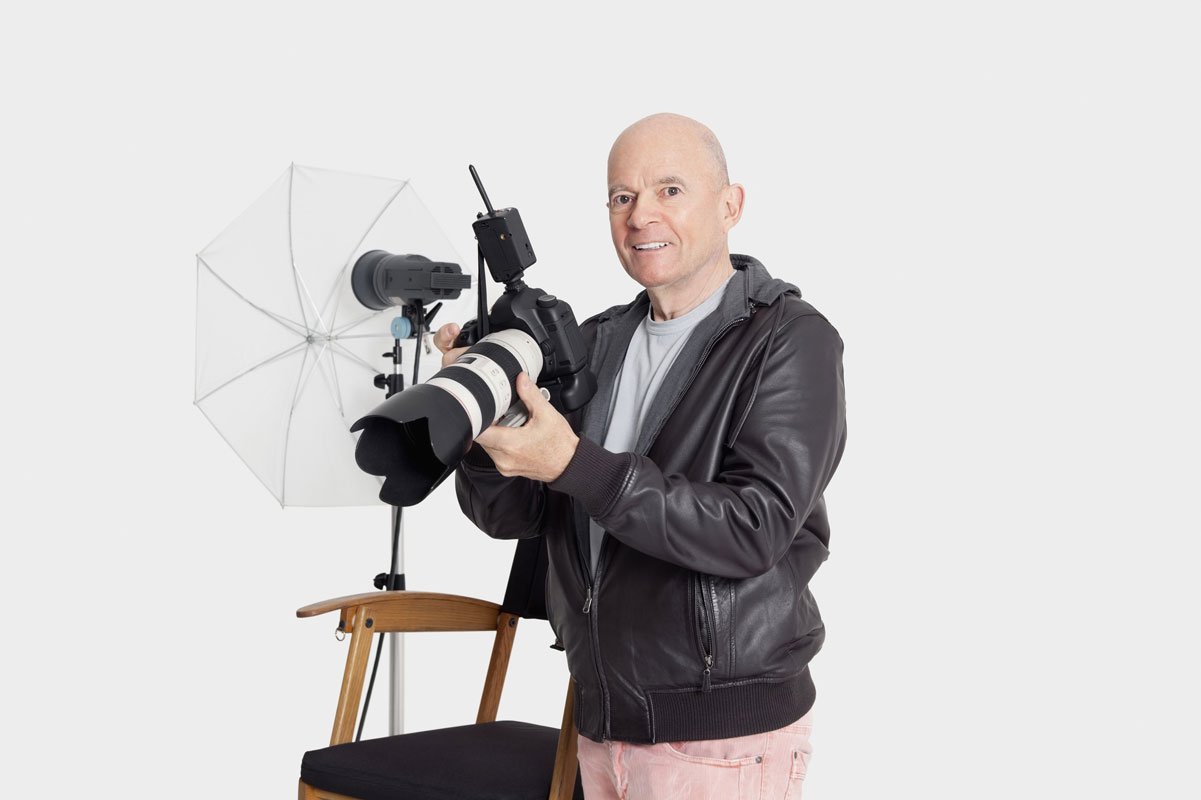Photography is still one of the most popular leisure activities. For some years now, it has been possible to take and share pictures with any smartphone. Many people don't just want to take photos more or less at random, they want to take high-quality or even high-quality pictures. This is why photography courses are in high demand. Anyone who wants to learn photography is spoiled for choice. From simple photography courses for beginners to professional photography training, there are numerous options. It is important to define your personal photography goals and then find out about suitable photography schools.
Not so long ago, a whole range of professions related to photography could be learned in basic training after completing upper secondary school. These included training as a photographer, reprographer, photo reporter, photo lab technician, retoucher, photo assistant or photo retailer. Progressive digitalization has led to the complete disappearance of some photographic professions over the past 25 years, while others have grown into a diverse training profile. In Switzerland today, anyone opting for initial training in the field of photography has the opportunity to complete a four-year apprenticeship as a photographer. During their training as a photographer, apprentices are taught the basics of photography. This includes both creative and technical aspects. Graduates are able to take high-quality photographs outdoors or in a studio. These can be portrait or product shots taken in a photo studio. Photographers are often commissioned to take pictures outside of a studio, for example in the real estate or tourism sectors. Another major field of activity is photography for the media, such as reportages. In addition to the correct use of professional photographic equipment, apprenticeship graduates are able to correctly illuminate the elements to be photographed and subsequently edit the images on the computer. In Vevey, the apprenticeship to become a photographer can be completed as a full-time course with a six-month internship (Centre d'enseignement professionnel de Vevey).
If you want to learn photography through further training, you can either attend a photography course or a long-term training course. Photography courses are offered by various private or state organizations. It is important to carefully analyze your personal needs and goals and select the right photography course and provider on this basis.

In order to find the right photography course and the right photography school, prospective students should think about what they want to use the photography knowledge they have learned for. What previous knowledge do you already have? Do you primarily want to take beautiful leisure and vacation photos? Is the knowledge intended to turn the graduates of a photography course into hobby photographers who can take photos with increased expressiveness? Should photography be used as a primary or secondary source of income? Should photography be practiced as an art? To make it easier to choose the right course and the right school, the following target groups can be distinguished: the vacation photographer, the hobby photographer, the professional photographer and the photo artist.
Those who take photos mainly on vacation or occasionally in their free time usually want to take photos that capture unforgettable moments and emotions. These can be situations such as a romantic sunset, an exotic market or the fun of river rafting. If you want to increase the expressiveness of your pictures and get more out of your camera, you should have the following photographic knowledge:
To acquire this basic knowledge, an intensive photo workshop lasting one to two days is sufficient. Please note the following:
The appetite comes with the food: If you get hooked on photography during your vacation, there are many other photo themes and opportunities to explore them in greater depth. A vacation activity can become a hobby that you can also enjoy in between meals and that is a great way to switch off from everyday life.

Hobby photographers who already have the necessary basic knowledge can continue their training in numerous photography courses. The in-depth courses can include the following topics:
Hobby photographers who want to deepen their knowledge should answer the following questions:
For hobby photographers, it is ideal if the photo course is timed so that what has been learned can be put into practice immediately afterwards.
If you want to pursue photography on a part-time or full-time basis, you need to have more than just photography under control. A professional photographer should have years of practical experience and see photography as a vocation. The talent to take meaningful, exciting and creative photos is important. A wealth of ideas paired with a sensitive streak that recognizes the effect of one's own images on the target group is often the key to success. Professional photographers manage to stage the objects or people to be photographed in such a way that they trigger emotions when looking at the pictures. The target group should not only recognize the staging of the photo subject, but also the professional implementation by the photographer.
What training and further education courses are available to become a professional photographer?
Further information on the photo courses and seminars:
Photography courses
Photo designer with federal diploma
Designer in communication design HF with federal diploma
Designer HF with federal diploma (specialization in photography)
Bachelor Visual Communicator FH with specialization in image/photography
What opportunities are there to work as a professional photographer?
Photographers who wish to be employed by an employer should ideally complete courses with a federally recognized qualification or courses from well-known schools.
Many photographers try to realize their dream job by becoming self-employed. The following requirements should be met:
Further information on setting up a successful company and becoming self-employed

Photography plays an important role in the visual arts. Photography classes are held at various design and art schools with the aim of developing the artistic potential of photographers. The aim is to combine photography with art. Participants should develop an independent and artistic visual language. Anyone who wants to combine art and photography and pursue fine art photography as a hobby, part-time job or even a full-time profession should find out more about the current courses on offer.
Further information on courses and seminars in the field of photography and art:
Photography courses with artistic aspects
Courses and photography courses on photography and art
Bachelor Camera Arts
Even for a one-day photography course, it is worth analyzing the various courses offered by photography schools based on your own needs and priorities. For longer courses, it is also worth visiting the school in conjunction with a personal consultation.
These are possible criteria for the targeted choice of photo school: